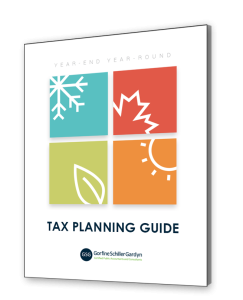In its final session of the year, Congress extended a long list of tax breaks that had expired, retroactive to the beginning of 2014. But the reprieve is only temporary. The extensions granted in the Tax Increase Prevention Act of 2014 remain in effect through December 31, 2014. For these tax breaks to survive beyond that point, they must be renewed by Congress in 2015.
Although certain extended tax breaks are industry-specific, others will appeal to a wide cross-section of individuals and businesses. Here are some of the most popular items.
- The new law retains an optional deduction for state and local sales taxes in lieu of deducting state and local income taxes. This is especially beneficial for residents of states with no income tax.
- The maximum $500,000 Section 179 deduction for qualified business property, which had dropped to $25,000, is reinstated for 2014. The deduction is phased out above a $2 million threshold.
- A 50% bonus depreciation for qualified business property is revived. The deduction may be claimed in conjunction with Section 179.
- Parents may be able to claim a tuition-and-fees deduction for qualified expenses. The amount of the deduction is linked to adjusted gross income.
- An individual age 70½ and over could transfer up to $100,000 tax-free from an IRA to a charity in 2014. The transfer counts as a required minimum distribution (RMD).
- Homeowners can exclude tax on mortgage debt cancellation or forgiveness of up to $2 million. This tax break is only available for a principal residence.
- The new law preserves bigger tax benefits for mass transit passes. Employees may receive up to $250 per month tax-free as opposed to only $130 per month.
- A taxpayer is generally entitled to credit of 10% of the cost of energy-saving improvements installed in the home, subject to a $500 lifetime limit.
- Educators can deduct up to $250 of their out-of-pocket expenses. This deduction is claimed “above the line” so it is available to nonitemizers.
The remaining extenders range from enhanced deductions for donating land for conservation purposes to business tax credits for research expenses and hiring veterans.
Finally, the new law authorizes tax-free accounts for disabled individuals who use the money for qualified expenses like housing and transportation. Another provision in the law provides greater investment flexibility for Section 529 accounts used to pay for college.





